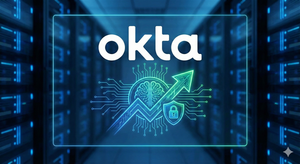
The specter of FTX's collapse continues to haunt the cryptocurrency landscape, with the FTX Recovery Trust launching a colossal $1.15 billion lawsuit against Bitcoin mining giant Genesis Digital Assets (GDA). Filed on September 22, 2025, in the U.S. Bankruptcy Court for the District of Delaware, this legal offensive alleges that disgraced FTX founder Sam Bankman-Fried orchestrated a scheme of "reckless" and fraudulent investments, siphoning over a billion dollars of commingled customer funds into GDA. The lawsuit sends a chilling message across the crypto mining sector, demanding heightened scrutiny on funding sources, corporate governance, and due diligence in an industry still grappling with the fallout of the 2022 market meltdown.
This significant clawback effort, one of the largest to date in the sprawling FTX bankruptcy proceedings, aims to recover assets for the exchange's defrauded customers. The allegations paint a grim picture of financial malfeasance, with Bankman-Fried purportedly ignoring numerous "red flags" and making "outrageously inflated" investments that benefited himself and GDA's co-founders at the expense of FTX's unsuspecting users. The immediate implications for Genesis Digital Assets are severe, threatening its financial stability and reputation, while the broader crypto mining industry faces renewed calls for transparency and accountability.
Unpacking the Allegations: A Timeline of Misconduct and Mismanagement
The FTX lawsuit against Genesis Digital Assets (GDA) details a series of alleged fraudulent transfers and investments orchestrated by former FTX CEO Sam Bankman-Fried (SBF) through Alameda Research, FTX's sister trading firm. The core of the complaint asserts that between August 2021 and April 2022, Bankman-Fried directed Alameda to invest approximately $1.15 billion of misappropriated FTX customer deposits into GDA. These investments included purchasing 154 preferred shares at "outrageously inflated prices," totaling over $500 million, and wiring an additional $550.9 million directly to GDA's co-founders, Rashit Makhat and Marco Krohn, who allegedly pocketed these funds from selling their personal shares to Alameda.
The FTX Trust contends that these transactions provided little to no value to FTX, which was already facing insolvency. Internal concerns within GDA reportedly described the valuations as "insane and off market," yet Bankman-Fried allegedly pressed forward. The lawsuit highlights a litany of ignored "red flags," including GDA's unaudited financial statements that "bore no relation to reality," reports of potential money laundering concerns, and the precarious energy situation in Kazakhstan, where GDA primarily operated. The complaint further claims that these transfers were designed to personally benefit Bankman-Fried, as the 90% owner of Alameda, allowing him to capture the upside from GDA's inflated valuation while externalizing losses to FTX customers and creditors.
The timeline of events leading up to this lawsuit is critical:
- August 2021 - April 2022: Alameda Research invests approximately $1.15 billion in Genesis Digital Assets, including a $100 million investment in August 2021, $550 million in January 2022, $250 million in February 2022, and another $250 million in April 2022. The co-founders, Makhat and Krohn, reportedly received their share of the funds from stock sales in February 2022.
- November 2022: FTX collapses and files for Chapter 11 bankruptcy, revealing billions in missing customer funds.
- November 2023: Sam Bankman-Fried is convicted on seven criminal counts, including fraud and conspiracy, and subsequently sentenced to 25 years in prison.
- September 22, 2025: The FTX Recovery Trust files the $1.15 billion lawsuit against Genesis Digital Assets in the U.S. Bankruptcy Court for the District of Delaware.
Key players in this unfolding drama include the FTX Recovery Trust (the plaintiff), Genesis Digital Assets Ltd. (the primary defendant), Sam Bankman-Fried (the alleged orchestrator), Alameda Research (the conduit for funds), and GDA co-founders Rashit Makhat and Marco Krohn (alleged beneficiaries). As of the immediate aftermath of the lawsuit filing, Genesis Digital Assets has not yet issued a public response. However, the crypto community is closely watching the case, viewing it as a pivotal moment in the ongoing FTX saga that underscores concerns about regulatory frameworks, market stability, and investor trust. The FTT token, FTX's native currency, even saw a significant price surge following news related to Bankman-Fried, illustrating the market's sensitivity to these developments.
Market Ripple Effects: Who Wins and Who Loses?
The FTX lawsuit against Genesis Digital Assets carries profound implications for the involved parties and the broader crypto mining sector, creating clear potential losers and indirect impacts on others.
Genesis Digital Assets (GDA) stands as the primary and most immediate loser. A successful clawback of $1.15 billion would be catastrophic, severely depleting its capital, jeopardizing ongoing operations, and potentially forcing it into bankruptcy. The "alter ego" claims against GDA's U.S. subsidiaries, such as Dog House TX-1 and Mother Whale LLC, could further expose its entire corporate structure to legal and financial entanglement. Beyond financial distress, the allegations of inflated valuations, fraudulent transfers, and questionable financial practices will inflict severe reputational damage, making it exceedingly difficult for GDA to secure future funding, forge partnerships, or attract talent. Reportedly planning a U.S. IPO as recently as July 2024 with an April 2022 valuation of $5.5 billion, GDA's public offering prospects are now highly likely to be delayed or entirely derailed.
For other public crypto mining companies, the impacts are largely indirect, but significant. While no other public miners are directly implicated in this specific lawsuit, the event will lead to increased scrutiny across the board. Institutional investors, lenders, and regulators will likely apply more rigorous due diligence to all crypto mining companies, scrutinizing funding sources, corporate governance, and financial transparency more intensely. This could make it harder for less transparent or financially weaker miners to secure capital or partnerships. Generalized negative market sentiment stemming from high-profile crypto lawsuits could also lead to temporary dips or increased volatility in the stock performance of public mining companies, even those with no direct connection.
Conversely, well-capitalized and transparent miners might emerge as relative "winners" or remain largely unaffected. Public mining companies with strong balance sheets, clear governance, transparent financial reporting, and diversified funding sources, such as Marathon Digital (NASDAQ: MARA) or Riot Platforms (NASDAQ: RIOT), are better positioned to weather such market uncertainty. They might be perceived as safer investments, potentially attracting capital away from perceived riskier entities. Furthermore, if GDA faces severe financial distress or is forced to liquidate assets, stronger public miners could seize opportunities to acquire mining rigs, data centers, or other infrastructure at distressed prices, accelerating consolidation within the industry and benefiting those capable of expanding operations cost-effectively. Companies demonstrating strong Environmental, Social, and Governance (ESG) practices, especially regarding sustainable energy and operational stability, may also see increased favor from investors.
Broader Significance: A Catalyst for Industry Evolution
The FTX lawsuit against Genesis Digital Assets is more than just another legal battle; it's a critical moment that amplifies broader industry trends, regulatory imperatives, and historical lessons. It underscores the deepening erosion of investor trust in an industry frequently criticized for its opacity and interconnectedness. The alleged misuse of FTX customer funds for speculative, inflated investments through Alameda Research exemplifies the systemic risks inherent when closely linked crypto firms operate with minimal transparency, echoing the cascading failures seen across numerous crypto bankruptcies in 2022-2023.
This case also exposes significant vulnerabilities in crypto lending and investment practices. Genesis's own bankruptcy in January 2023, stemming from liquidity issues due to bad loans and frozen withdrawals, illustrates the dangers of such opaque dealings. The lawsuit's outcome could redefine how courts handle fraudulent transfers in digital asset bankruptcies, potentially reshaping lending agreements and corporate governance norms across the sector. For the crypto mining industry specifically, the allegations of inflated valuations and disregard for operational risks like the energy crisis in Kazakhstan will lead to intensified scrutiny of financing and due diligence practices for all mining investments.
The ripple effects will be felt throughout the crypto ecosystem. Competitors and partners will face heightened pressure to conduct more rigorous due diligence, demanding greater transparency and stricter internal controls. The ongoing legal battles will likely continue to shake investor confidence, fostering a more conservative approach from both retail and institutional players. Crucially, the outcome of this case, particularly regarding the unwinding of allegedly inflated deals, has the potential to set significant legal precedents for how crypto-related fraud and asset recovery are handled in future bankruptcy proceedings.
From a regulatory and policy perspective, the lawsuit significantly amplifies calls for clearer and more comprehensive regulations. The allegations of commingled funds and fraudulent transfers highlight the urgent need for enhanced financial governance to restore trust and ensure stability. Regulators are expected to intensify their oversight of crypto custody and lending practices. The U.S. has already passed the GENIUS Act in July 2025, mandating 100% reserve backing for stablecoins and transparency, while the EU's Markets in Crypto-Assets (MiCA) framework is set for full implementation in 2026, imposing stringent audit and operational standards. This lawsuit further bolsters the case for more stringent compliance rules across various digital asset services. The international dimension, with GDA's operations in Kazakhstan and allegations of misleading financials, also emphasizes the need for global cooperation in regulating the crypto market and preventing regulatory arbitrage.
Historically, the FTX collapse and subsequent lawsuits draw parallels to major financial frauds like Enron and Madoff, and are part of a series of crypto bankruptcies including Celsius, Voyager Digital, and Three Arrows Capital (3AC). These events collectively highlight the long-standing risks of centralized platforms and the challenges of asset recovery in a relatively unregulated space, underscoring the critical need for the "preferential transfer" doctrine in bankruptcy law to ensure equitable distribution to creditors.
What Comes Next: Navigating an Evolving Landscape
The FTX lawsuit against Genesis Digital Assets initiates what is likely to be a protracted legal battle, with significant short-term and long-term possibilities for GDA and the wider crypto mining sector. In the short term, GDA will face immense operational strain due to legal costs and reputational damage, potentially hindering its ability to secure new capital or maintain existing infrastructure. The broader market may experience increased volatility as investors react to developments, and other crypto mining companies will immediately face heightened scrutiny regarding their funding sources and financial transparency.
Looking to the long term, the lawsuit is part of a broader "regulatory awakening" post-FTX collapse, which will undoubtedly lead to a stricter regulatory landscape for all crypto businesses, including miners. This will necessitate a significant shift towards greater transparency and robust corporate governance across the industry. Companies prioritizing independent audits, clear financial reporting, and strong internal controls will gain a competitive advantage. Crypto miners will also likely diversify their funding strategies, reducing reliance on single large investors or highly interconnected crypto venture funds to mitigate "contagion risk." The increased pressure and capital requirements could also lead to further consolidation within the mining sector, as well-capitalized and compliant miners acquire smaller, struggling operations.
Strategic pivots and adaptations will be crucial for crypto mining companies. This includes implementing stringent due diligence for all partnerships, establishing robust corporate governance with independent boards, and diversifying operations and revenue streams—with some public firms already rebranding as digital infrastructure providers, venturing into AI and cloud services. Geographical and energy strategy diversification will also be key to mitigate geopolitical and energy risks, with a focus on stable grids and sustainable energy sources. Strengthening balance sheets with sufficient liquidity and proactive engagement with evolving regulatory frameworks will be paramount to navigate market volatility and avoid legal entanglements.
Market challenges will include potentially harder and more expensive access to capital for less transparent operations, increased compliance costs, and lingering reputational risk for the entire industry. However, market opportunities will also emerge. Well-governed and transparent mining companies will likely attract more institutional investment, while distressed assets may present acquisition opportunities for stronger players. The push for energy efficiency and operational resilience could accelerate technological advancements, and there may be an increased demand for specialized legal, auditing, and compliance services tailored to the crypto mining industry.
A Comprehensive Wrap-Up: Lessons Learned and the Path Forward
The FTX lawsuit against Genesis Digital Assets is a pivotal moment in the ongoing narrative of FTX's collapse, underscoring the critical need for transparency, robust governance, and accountability in the rapidly evolving crypto industry. The legal action to reclaim $1.15 billion in alleged fraudulent transfers of customer funds reinforces several key takeaways: the FTX Recovery Trust's aggressive pursuit of assets, the central role of fraudulent transfers and misappropriated funds in the FTX saga, the profound failures in governance and due diligence, and the inherent risks of interconnected crypto entities. The outcome of this lawsuit will undoubtedly set important legal precedents for how U.S. bankruptcy courts handle fraudulent transfers and asset recovery in the digital asset space, particularly concerning inflated valuations and commingled funds.
Moving forward, the crypto market will continue to operate under increased regulatory scrutiny, with intensified calls for clearer rules around asset management, customer fund segregation, and corporate governance. While ongoing legal battles may impact investor confidence, successful recovery efforts could gradually rebuild trust by demonstrating accountability. Market volatility might also stem from the ongoing distributions to FTX creditors, potentially influencing liquidity and sentiment. The overarching trend will be a heightened focus on transparency and compliance, compelling crypto businesses to adopt stricter internal controls and anti-fraud measures.
The lasting significance of this lawsuit lies in its power to reinforce accountability, directly challenge opaque investment practices, and ultimately contribute to long-term trust building within the crypto ecosystem. It signals that illegal activities will be pursued vigorously, and the complex nature of such crypto bankruptcies will inevitably contribute to the evolution of legal frameworks and precedents for digital assets.
Investors should closely monitor several key areas in the coming months:
- FTX Recovery Progress: Track the overall asset recovery and distribution to creditors, as significant payouts could influence market liquidity and sentiment.
- Regulatory Developments: Pay close attention to new regulatory guidelines or enforcement actions, as increased clarity, though potentially limiting, can foster greater stability.
- Outcomes of Clawback Lawsuits: The results of the GDA lawsuit and other ongoing clawback actions will inform how courts approach similar cases and affect the perceived risk of investing in projects with questionable historical funding.
- Due Diligence Emphasis: Prioritize platforms and projects that demonstrate strong governance, transparent financial reporting, and strict segregation of customer funds.
- Market Response to Legal Milestones: Observe how the crypto market reacts to key legal events, such as court rulings, settlements, or appeals, including Sam Bankman-Fried's appeal hearing scheduled for November 4, 2025.
This content is intended for informational purposes only and is not financial advice.





